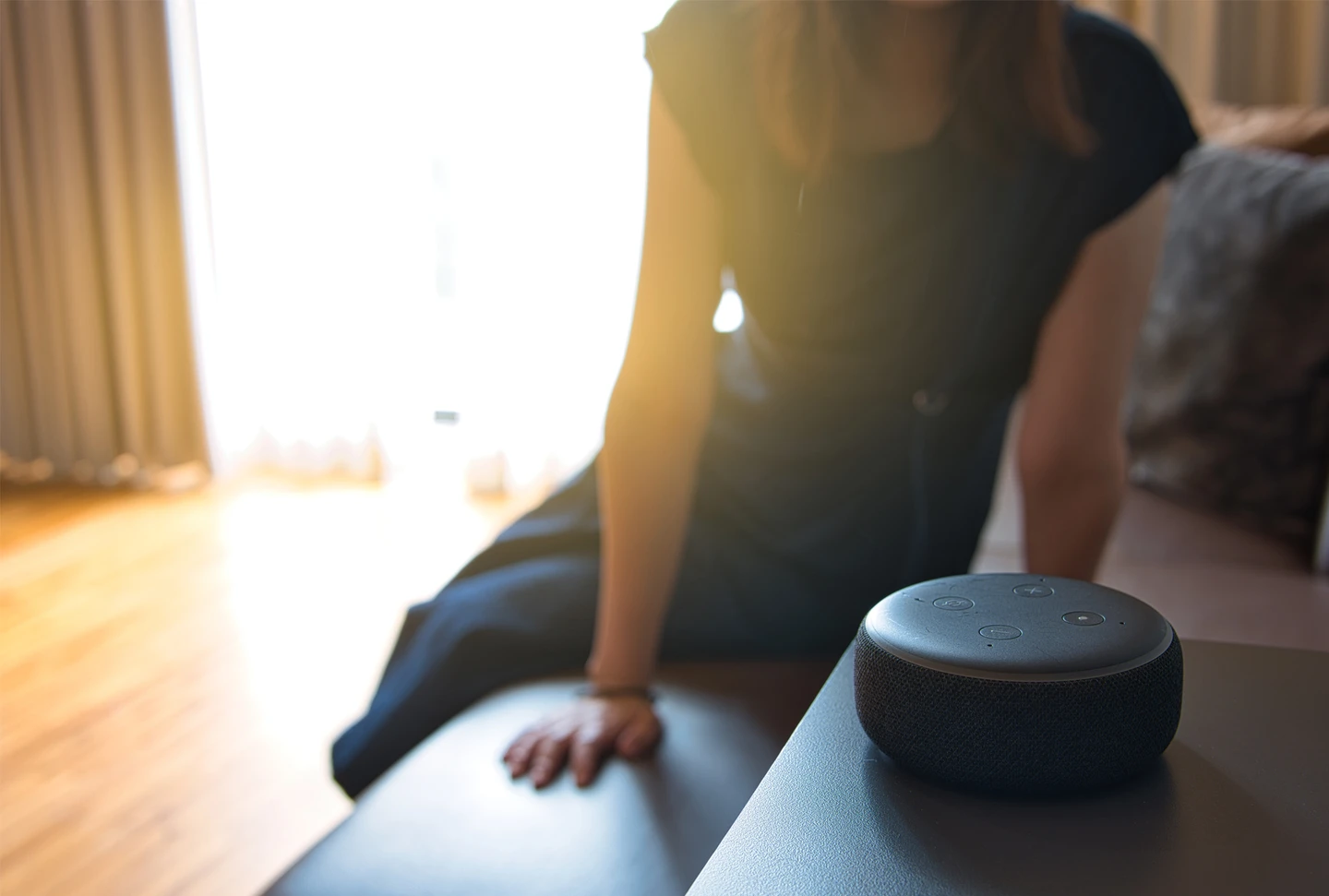5 Highly effective home assistant marketing strategies
The significance of audio content is growing every day. Podcasting and radio shows aside, the home assistant market alone is taking off faster than anybody expected.

Published on Sep 12, 2017

The significance of audio content is growing every day. Podcasting and radio shows aside, the home assistant market alone is taking off faster than anybody expected.

Published on Sep 12, 2017

In fact, Global Market Insight Inc. forecasts that the smart speaker market will be worth over $13 billion by 2024.
Home assistants like Amazon Echo or Google Home, which understand your verbal commands, are the key drivers behind this growth. As of today, you can use these devices to look up recipes and check on the weather, but as demand grows for these devices, content strategists need to be aware of how to leverage them as a marketing channel.
Before we get into how to use home assistants to market your brand, let’s first take a look at where the world stands in relation to this emerging technology.
According to Business Insider, there are over 35 million active smart speakers in the US, and as of June 2017, there were 15,000 Alexa Skills (which are essentially Amazon Echo apps) in circulation. To keep that number growing, Amazon—which holds the largest market share in the home assistant space—has unveiled an Alexa Skill developer hub full of documentation to kickstart skill-building campaigns for both standalone developers and big name brands.
Amazon has also recommended 20 agencies to brands that want a helping hand with their skills production, including Accenture, Connected Labs, and Vayner Media.
So, although home assistants should still be considered a relatively novel item in the average home, it’s safe to say that we’re entering the era of voice.
With that in mind, let’s take a look at how you can use home assistants to grow your sales, raise brand awareness, and improve customer experiences.
Home assistants can bring plenty of value to a tightly packed morning schedule, and that’s one of the reasons behind their growing popularity. Many people use them for weather and traffic updates as they prepare breakfast, for example. Your brand could add to that value by being the next voice in the queue, serving up some useful tips and reminders to get a person’s day started.
Everyday Health presents a good example of this strategy in action. Their Alexa Skill “What to Expect” gives daily pregnancy updates to expectant mothers. It’s designed to help keep track of a pregnancy, allowing mothers to ask Alexa what to expect every day, week, and month.
Beyond daily tips and reminders, which typically last a few fleeting seconds, you could use home assistants as a way to distribute your podcast episodes or broadcast industry-related rants that are exclusive for your Alexa or Google Home listeners.
Listing your podcast episodes on Spotify, thus making it easy for Amazon Eco owners to listen in, is one way to go.
Or, you could take a leaf out of The History Channel’s book. Their Alexa Skill “This Day in History”, covers exactly what the name implies. Just ask Alexa to launch the app each day, and it will narrate a story from history that coincides with whatever the date is. You can also enquire about particular dates if you want to hear more.
If your audience has questions, a home assistant is a convenient way for them to hear your answers.
UK-based charity The Red Cross launched a first aid skill for Alexa which allows users to ask questions to treat common problems, including severe bleeding, burns, and seizures. It's possible to ask such questions as “How do I treat a nosebleed?”, and have the Skill respond with all the relevant information.
This same strategy could be adopted by brands that wish to answer questions about their products or services—or simply to answer questions related to a particular topic. You could even throw in some whacky questions and answers to add an element of entertainment.
Home assistants may be emerging technology, but audio influencer marketing is already in full swing.
Hearst Corporation, the book publisher, has jumped on the bandwagon by bringing daily Oprah quotes to Amazon Alexa users. Named “O to Go”, the skill allows Alexa users to ask for an inspirational quote from Oprah Winfrey's 2014 book “What I Know for Sure”, every single day.
Similarly, a brand could leverage the voice of any relevant influencer to read out tips, reminders, or answers to questions.
Sometimes having a great customer experience is better than having a great marketing strategy. After all, if your customers are pleased with your product or service, they’ll market your brand for you via word of mouth.
The digital travel agency Kayak has used their Alexa Skill to expand their customer experience. Users can say, “Alexa, ask Kayak where I can go for $400” or “Alexa, ask Kayak how much it costs to fly from from New York to London”. In other words, you can plan your next trip while making your morning coffee—now that’s great customer experience.
By integrating your Alexa Skill with your website or app, you too will be able to streamline your customer experience, and make audio an enticing way for your audience to interact with your brand.
Voice technology is still relatively new, but to stay ahead of your competition, your brand should be one of the first on the audio bandwagon.
The five examples above provide the foundations you need to plan your audio marketing strategy, and with a headless CMS, your developers and marketers can start delivering audio content through devices such as Amazon Echo and Google Home in no time.
Have you had any experience with home assistant marketing? Share your story with us in the comments section below, or if you are looking for more inspiration, follow Kontent.ai on Twitter.

What if we told you there was a way to make your website a place that will always be relevant, no matter the season or the year? Two words—evergreen content. What does evergreen mean in marketing, and how do you make evergreen content? Let’s dive into it.
Lucie Simonova

How can you create a cohesive experience for customers no matter what channel they’re on or what device they’re using? The answer is going omnichannel.
Zaneta Styblova

To structure a blog post, start with a strong headline, write a clear introduction, and break content into short paragraphs. Use descriptive subheadings, add visuals, and format for easy scanning. Don’t forget about linking and filling out the metadata. Want to go into more detail? Dive into this blog.
Lucie Simonova